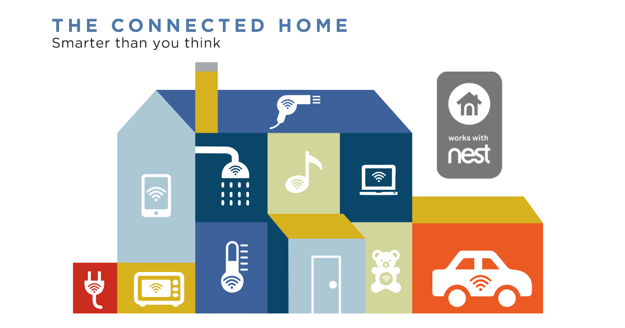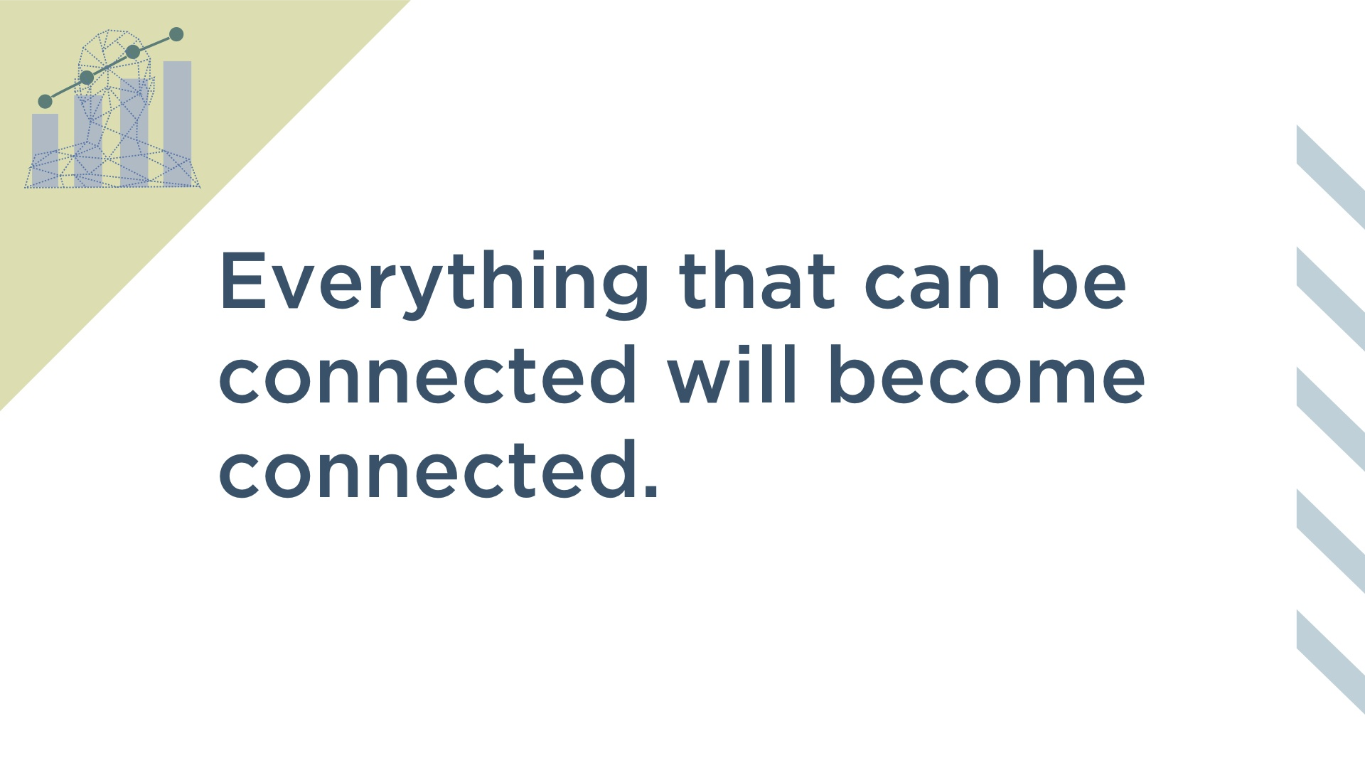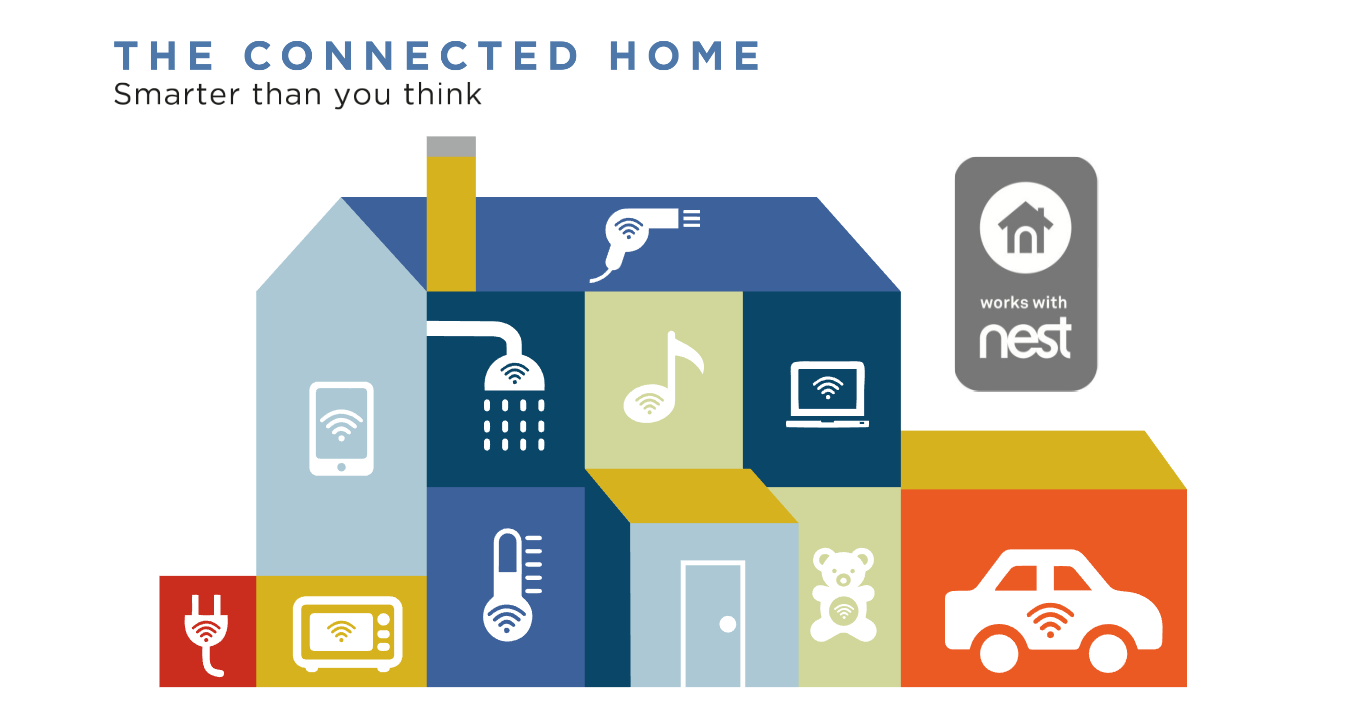Foresights and ideas that expand minds and inspire a change of heart.

Many Australians don’t realise how often they’re already engaging with the Internet of Things (IoT) in their everyday lives. They use “things” such as Google Home, Amazon’s Alexa and Apple’s Siri – or apps that manage their energy settings at home – and don’t realise these devices are what IoT is all about.
Pretty much anything with a switch will eventually become part of the Internet of Things. Just think what that means for the future!
One of the first phrases learnt by my now two-year-old son, Lucien, was “on/off, on/off, on/off” – he just loved turning lights and other bits and pieces on and off. Lucien will never know a world without IoT.
This digital layer will enmesh every part of our lives. Everything we use around the home will be connected to the internet.
We already know this worries a lot of people right now. We’ve done research showing Australians have very polarised opinions about the benefits of IoT. Some are worried about the impact it will have on their daily lives. Some fear the world is becoming digitally dehumanising and are concerned about how cold these pieces of technology can make us feel.
On the contrary, I think IoT will make our lives safer and have a civilising effect on people. I believe smarter devices and smarter homes will deliver more humane outcomes. Technology helps us stay connected and will enable us to enjoy more active, happier lives for longer.

Just think about the profound impact technology is having in the aged-care space. My grandmother, Ingrid, had to sell the family home when she was in her eighties. My grandfather passed away and she didn't think she couldn't look after her home or garden any more. Luckily she ended up staying independent by living in her own apartment.
Our parents and grandparents should be able to live in their homes for as long as they choose, and IoT can help them do that. My baby boomer parents now have a robot mowing their lawn. They could also have a robot doing the vacuuming and other jobs that used to be done by humans.

Then there are the positive health outcomes that come from having the right technology in the home. Falls are a major health concern for older people and their families. Did you know experts predict by 2022 there will be more than 30,000 hip fractures in Australia every year? About 93% of these fractures are caused by people falling over.
Researchers in Illinois are working on a wearable device with motion sensors that measure stability levels based on someone’s walking patterns. Through data analysis, researchers say the device – perhaps a smartwatch – can accurately predict the wearer’s risk of falling. In a real-life situation, the person’s primary caregiver and family would be advised if someone might be in danger of falling. Not only would this kind of technology prevent a lot of those falls, but it would also improve a loved one’s quality of life and save millions in healthcare costs.
Smart glasses are shaping up to be another wearable healthcare solution. Opticians know that while eyes are the windows to the soul, they're also the windows to your health. Did you know, for example, that eye testing is the best way to diagnose diabetic retinopathy? Eye tests can also uncover a range of other serious health issues, including high blood pressure, thyroid disorders, multiple sclerosis, arthritis and some cancers.
Can you imagine what it would be like if your glasses don't just help you see but also continuously monitor your health, sending real-time results to your healthcare provider?
Another way IoT will make us more humane could be through something simple such as digitally connected pill dispensers. Smart bottles will alert people, and their family, if they haven’t taken their medicines today.
We're already seeing a move by doctors to prescribe apps to their patients. A smartphone app created by ScalaMed allows doctors to send patient prescriptions, information about their medicine and health regime, and it’s all kept on a safe digital record. Yes, the iPhone is now a sophisticated medical device.
Queensland company LifeLink already offers a range of connected devices, such as emergency response alarms and assistive technologies, that allow people to live at home with confidence.
I saw a great television show the other day, Old People’s Home For 4 Year Olds. It showed what happens when retirement home residents have a chance to spend time with a group of pre-schoolers. Not only did the program illustrate how children helped the residents overcome their fears of ageing, it highlighted the loneliness and social isolation experienced by many older Australians.
I firmly believe connected technology will play a massive role in helping society deal with many issues faced by our ageing population. In the near future, we won’t have to lead isolated and unhappy lives – we will be able to stay engaged and active.
Just think: 1 million baby boomers will retire in Australia over the next two decades. Wouldn't it be amazing to keep them happier and safer for longer? IoT can make that happen.
The Transformation Economy is being integrated into the lives of many Australians. Stay abreast of the drivers of change and think like a futurist by taking a look at our trend report.

Header Text
Lorem ipsum dolor sit amet, consectetur adipiscing elit, sed do eiusmod tempor incididunt ut labore et dolore magna aliqua. Ut enim ad minim veniam, quis nostrud exercitation ullamco laboris nisi ut aliquip ex ea commodo consequat. Duis aute irure dolor in reprehenderit in voluptate velit esse cillum dolore eu fugiat nulla pariatur.
Lorem ipsum dolor sit amet, consectetur adipiscing elit, sed do eiusmod tempor incididunt ut labore et dolore magna aliqua. Ut enim ad minim veniam, quis nostrud exercitation ullamco laboris nisi ut aliquip ex ea commodo consequat. Duis aute irure dolor in reprehenderit in voluptate velit esse cillum dolore eu fugiat nulla pariatur.
Lorem ipsum dolor sit amet, consectetur adipiscing elit, sed do eiusmod tempor incididunt ut labore et dolore magna aliqua. Ut enim ad minim veniam, quis nostrud exercitation ullamco laboris nisi ut aliquip ex ea commodo consequat. Duis aute irure dolor in reprehenderit in voluptate velit esse cillum dolore eu fugiat nulla pariatur.

Header Text
Lorem ipsum dolor sit amet, consectetur adipiscing elit, sed do eiusmod tempor incididunt ut labore et dolore magna aliqua. Ut enim ad minim veniam, quis nostrud exercitation ullamco laboris nisi ut aliquip ex ea commodo consequat. Duis aute irure dolor in reprehenderit in voluptate velit esse cillum dolore eu fugiat nulla pariatur.
Lorem ipsum dolor sit amet, consectetur adipiscing elit, sed do eiusmod tempor incididunt ut labore et dolore magna aliqua. Ut enim ad minim veniam, quis nostrud exercitation ullamco laboris nisi ut aliquip ex ea commodo consequat. Duis aute irure dolor in reprehenderit in voluptate velit esse cillum dolore eu fugiat nulla pariatur.
Lorem ipsum dolor sit amet, consectetur adipiscing elit, sed do eiusmod tempor incididunt ut labore et dolore magna aliqua. Ut enim ad minim veniam, quis nostrud exercitation ullamco laboris nisi ut aliquip ex ea commodo consequat. Duis aute irure dolor in reprehenderit in voluptate velit esse cillum dolore eu fugiat nulla pariatur.

Header Text
Lorem ipsum dolor sit amet, consectetur adipiscing elit, sed do eiusmod tempor incididunt ut labore et dolore magna aliqua. Ut enim ad minim veniam, quis nostrud exercitation ullamco laboris nisi ut aliquip ex ea commodo consequat. Duis aute irure dolor in reprehenderit in voluptate velit esse cillum dolore eu fugiat nulla pariatur.
Lorem ipsum dolor sit amet, consectetur adipiscing elit, sed do eiusmod tempor incididunt ut labore et dolore magna aliqua. Ut enim ad minim veniam, quis nostrud exercitation ullamco laboris nisi ut aliquip ex ea commodo consequat. Duis aute irure dolor in reprehenderit in voluptate velit esse cillum dolore eu fugiat nulla pariatur.
Lorem ipsum dolor sit amet, consectetur adipiscing elit, sed do eiusmod tempor incididunt ut labore et dolore magna aliqua. Ut enim ad minim veniam, quis nostrud exercitation ullamco laboris nisi ut aliquip ex ea commodo consequat. Duis aute irure dolor in reprehenderit in voluptate velit esse cillum dolore eu fugiat nulla pariatur.
& STAY UP TO DATE WITH FORESIGHTS AND TREND REPORTS!
WE WILL EQUIP YOU WITH THE VIDEOS AND MATERIALS YOU NEED TO SUCCESSFULLY PITCH ASN.
0 Comment